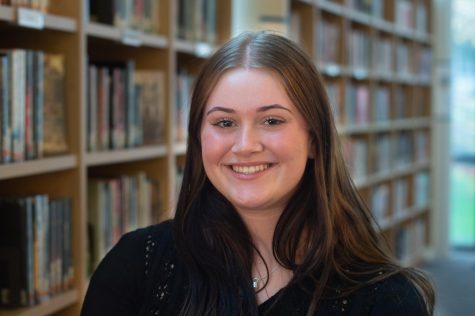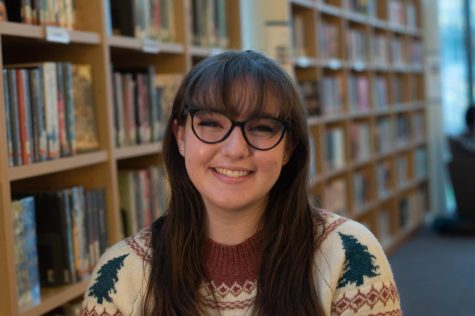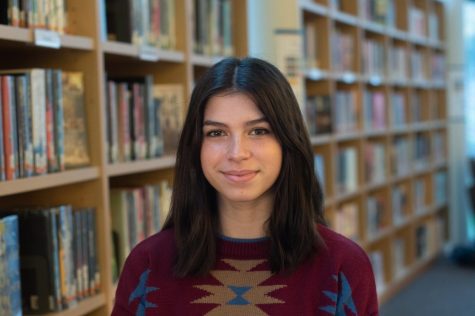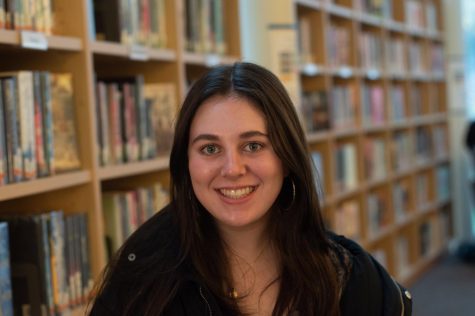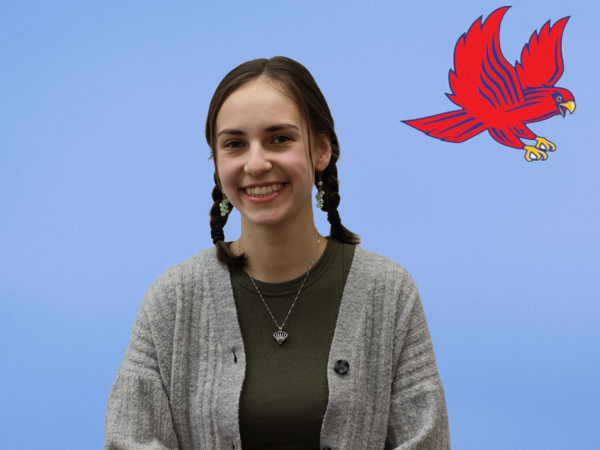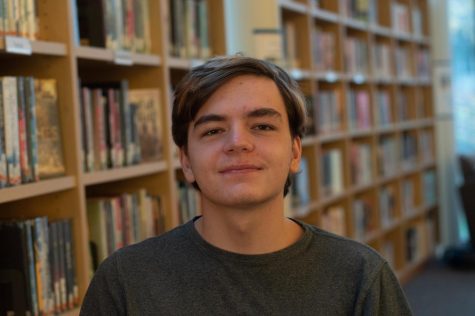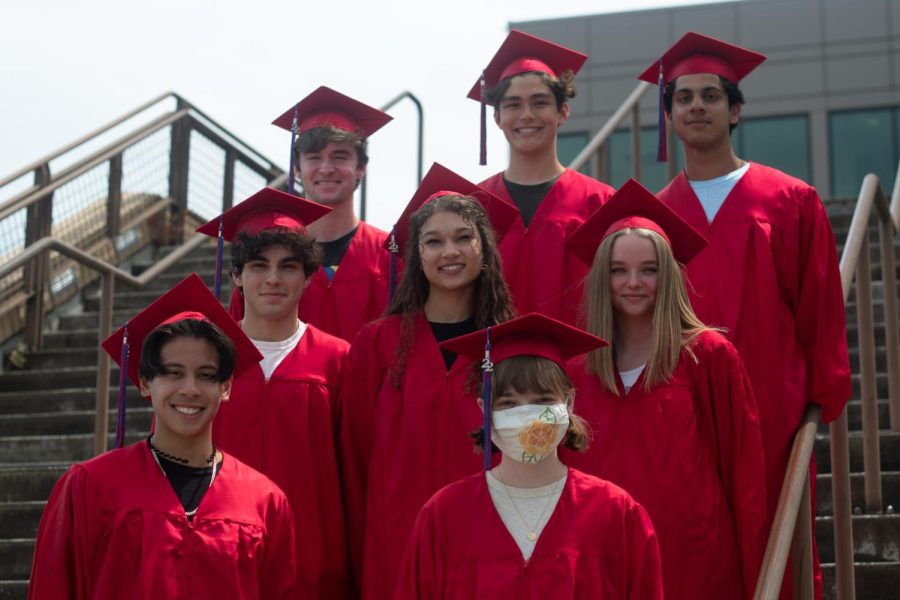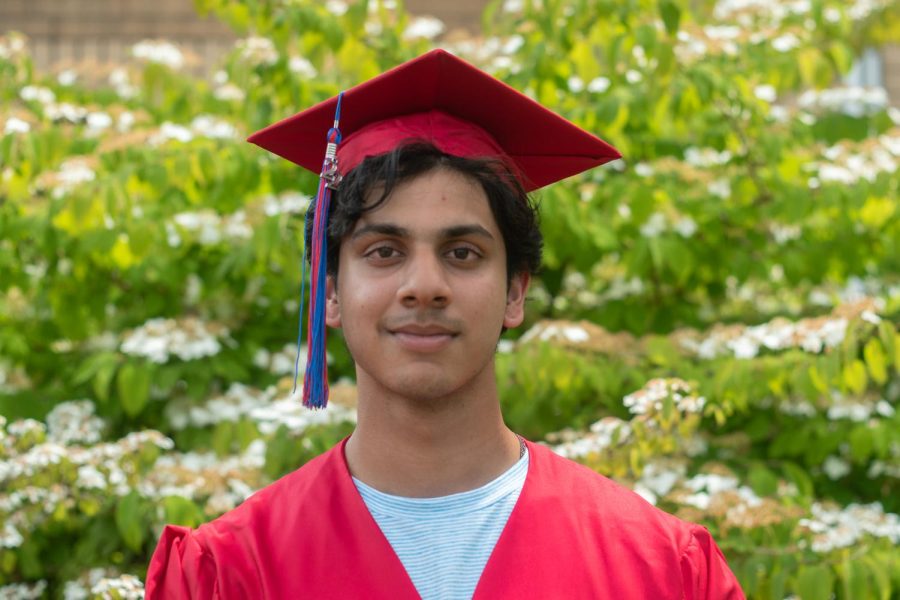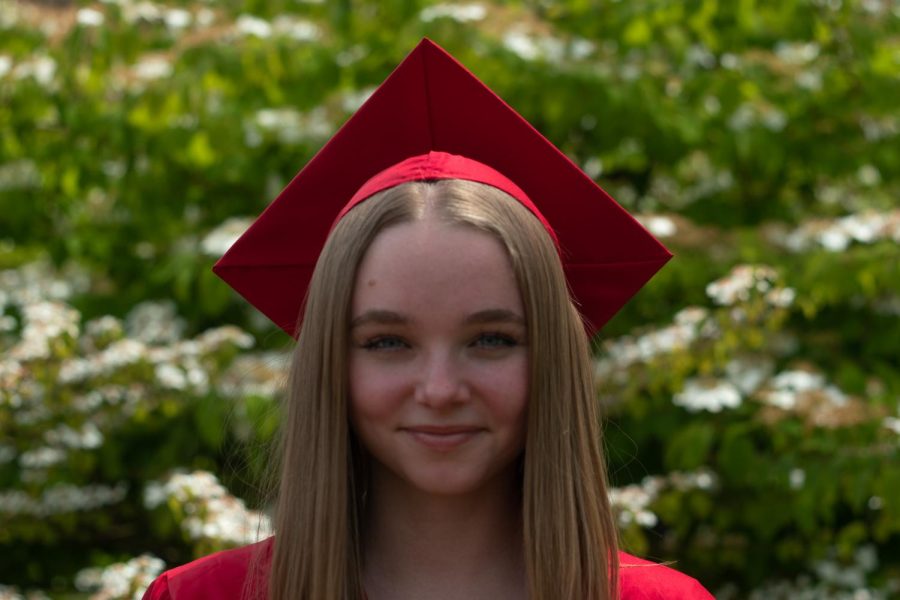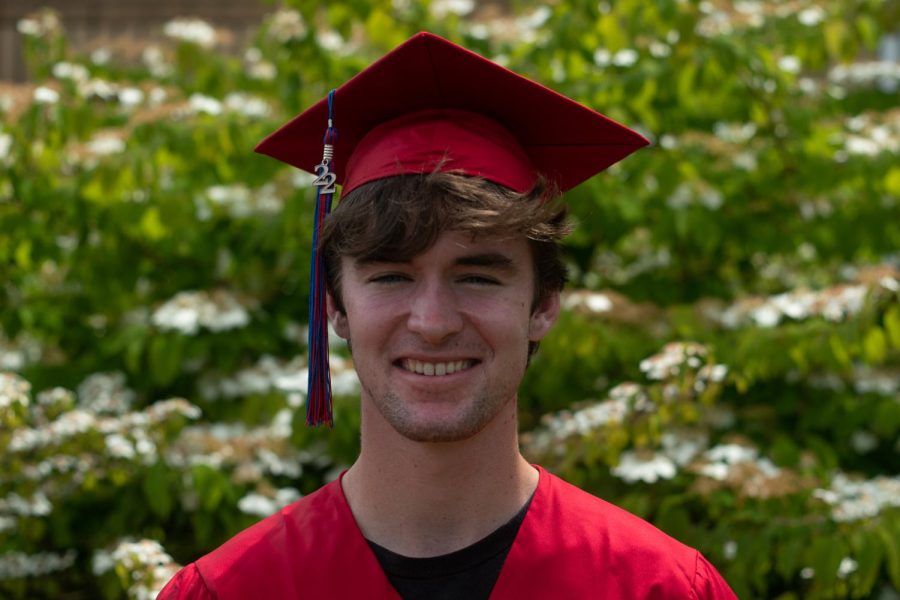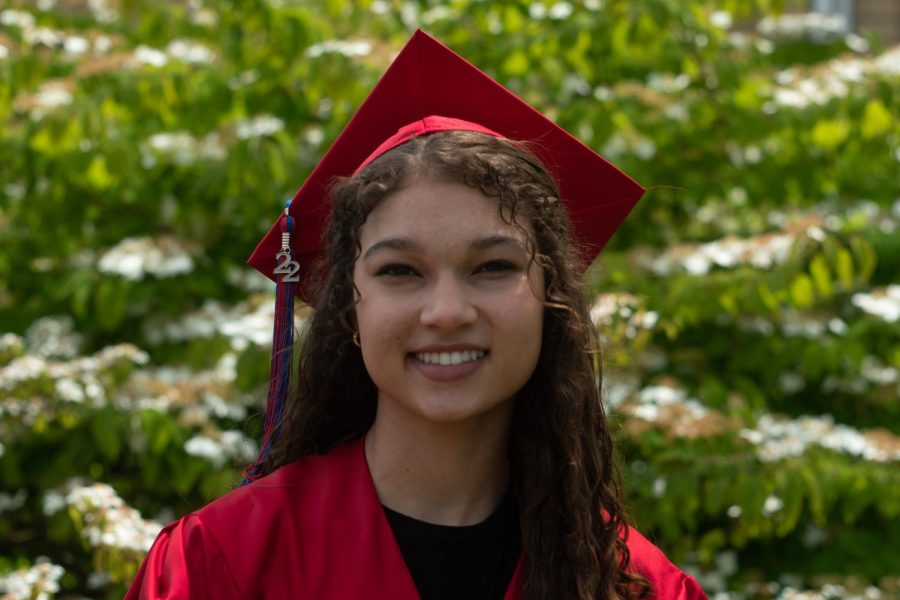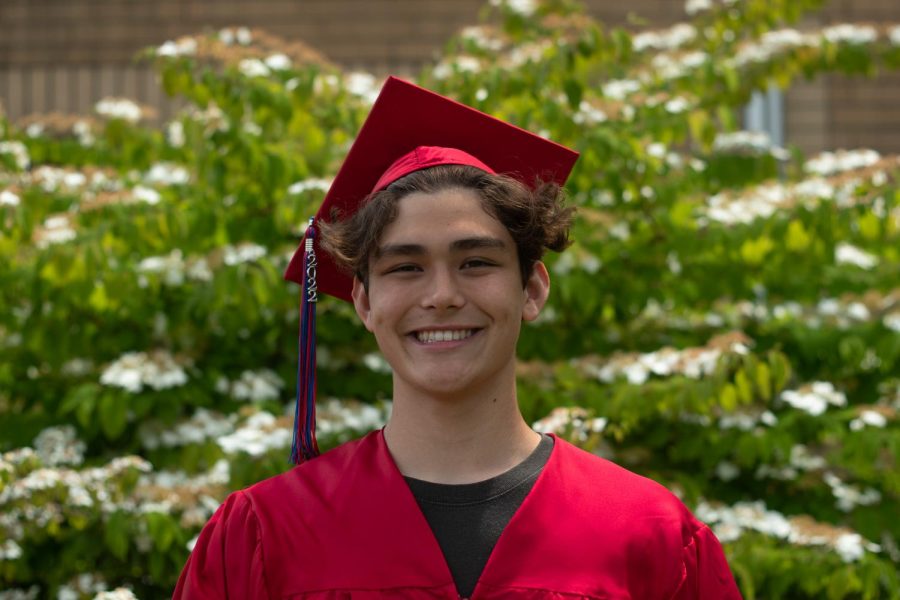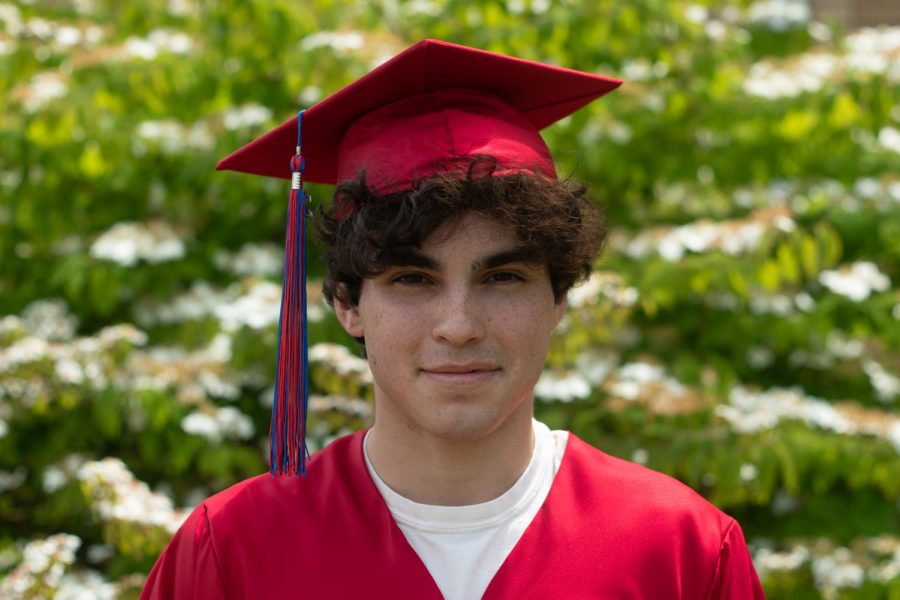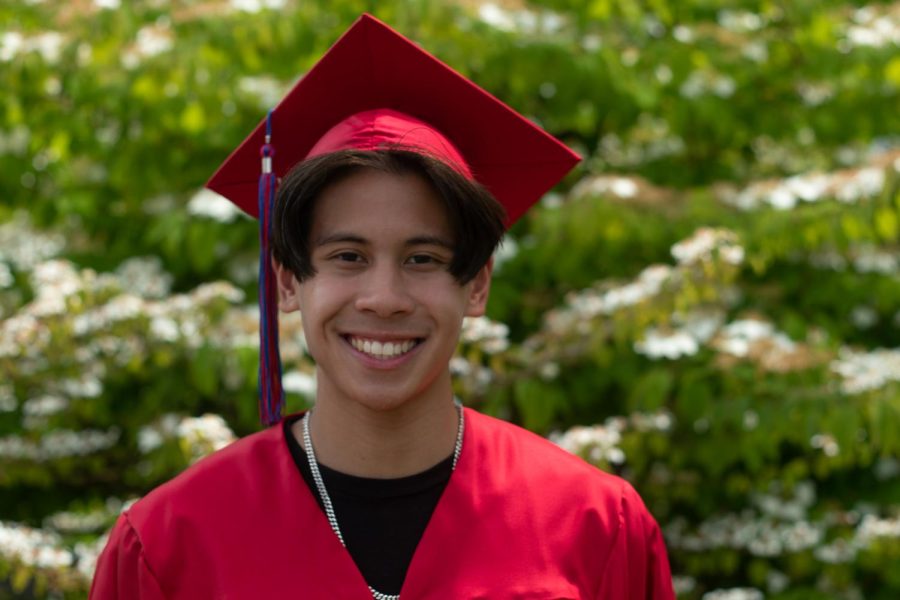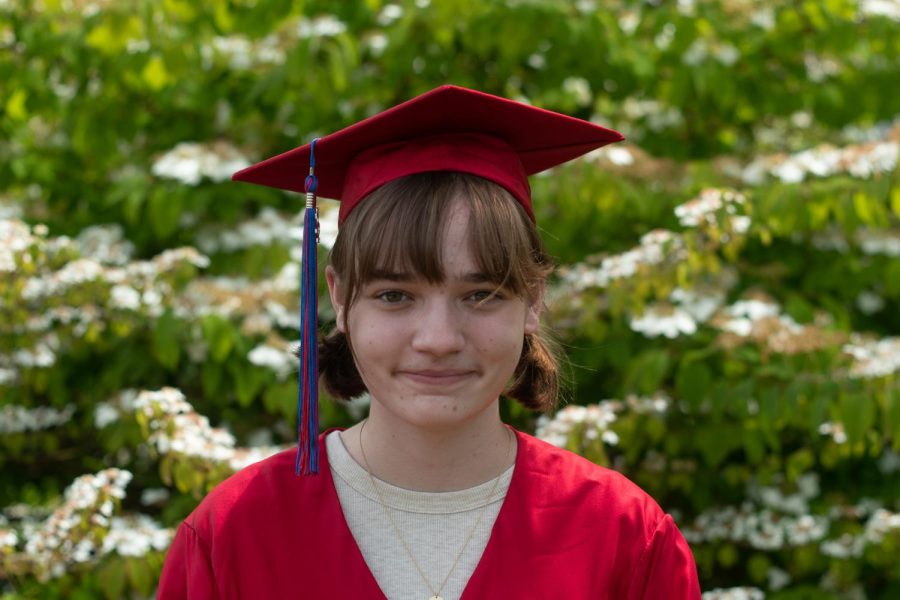For valedictorian Seth Wobig, the idea of becoming valedictorian has been a subconscious goal of his since he was just a freshman. He didn’t go to bed every night imagining that he would receive this title, but as he worked to follow in the footsteps of his family’s impressive academic legacy, the achievement of becoming a valedictorian followed as a result of his actions.
“I don’t want to say I was going for it since freshman year, but it was more like I desired to be taking all of the hard classes from freshman year and getting A’s,” Wobig said. He knew that a rigorous course load was a crucial aspect of getting into a distinguished college, which he was inspired to do by his parents and brothers.
“I always kind of wanted to go to a prestigious school,” he said. “Both of my parents went to Stanford, and then my brothers went to UCLA and UC Berkeley, so I was kind of like ‘Oh, I want to achieve similarly.’”
Since Wobig was a young kid, he has been an academically inclined person. He recalled his perfectionism in elementary school on spelling tests, explaining that before each test students would take a “pretest.” If they scored 100% on the pretest, they would not have to take the actual spelling test — this became the benchmark for him.
“There was this one time that I didn’t get 100% on the pretest, and I cried,” Wobig said. “Like a lot.”
This level of academic discipline became a standard in Wobig’s life, and holding himself to this standard for the entirety of high school is what ultimately allowed him to achieve the award of valedictorian.
Aside from Wobig’s desire to live up to his family’s impressive educational background, he also wanted to attend a reputable college because he saw that as a path to a successful career. After his diligent work throughout high school, Wobig felt that taking these next steps would validate all of the time and effort he put into his academics at La Salle.
“Because I worked so hard in high school, if I didn’t go to a prestigious school or I didn’t get a lot of money, what was all of that work for?” he said.
Although a lot of Wobig’s goals are rooted in the example that his family has set, he stressed that his parents never pressured him to reach a certain level of success, as long as he was putting forth the best effort he was capable of giving.
“If my best was a B, they would be fine with that, as long as I was trying my best,” he said. “There’s an expectation that we always try our hardest. My parents strongly encouraged us to do sports and music, but if we hated it, they weren’t going to make us do it.”
Despite his impressive academic record throughout high school, Wobig said that the college admissions process was very difficult for him. Applying to 13 different colleges, many of them being extremely competitive, “was a lot of work and a lot of essays,” he said. “I started studying for the SAT over junior-year summer, then basically like all of first semester I was working on essays almost every weekend.”
In the fall, Wobig will be attending the Georgia Institute of Technology. Boasting a 21% acceptance rate and an average SAT score of 1450, Georgia Tech is by no means an unimpressive school; however, this end result was not what Wobig had originally imagined for himself.
“I wasn’t super excited when I got into Georgia Tech initially, because it wasn’t like — it’s not a bad school by any means but it’s not like ‘Oh my God, Georgia Tech,” Wobig said.
Wobig was admitted to a variety of other impressive institutions, including the University of Washington and the University of California in both Santa Barbara and San Diego, “but then my reach schools, I didn’t get into any of them, and to be honest, I wasn’t super excited,” he said.
Although the rejections that Wobig received did make him feel somewhat discouraged, he recalled the process of actually completing the applications as being the most grueling part of the whole college admissions process.
“When I got the rejections I didn’t cry that much,” he said. “It was actually the application process — just writing the essays was crushing me. I cried so much while writing.”
Writing in general — not just on college applications — is something that Wobig admitted he has struggled with more than he has struggled with other subjects. He acknowledged that most people would not see an A- as a major disappointment, but when he earned an A- in Mr. Chris Krantz’s Honors English II class as a sophomore, “it was pretty soul-crushing,” he said.
Classes that center around science and math topics have always been Wobig’s favorite, but while creating his senior portfolio, he said that it was gratifying to see the progression of his writing throughout high school. “Looking at past works, I can just see that I’ve gotten better as a writer,” he said. “That in itself is rewarding.”
His English classes have allowed Wobig to really grow as a student, but when it comes to the classes he most enjoys, math has always stood out to him. This year, he took Multivariable Vector Calculus with Ms. Margaret Erich, alongside one of his fellow valedictorians, senior Reuben De Souza, and one of this year’s salutatorians, senior Dom Burkhart. This is the most advanced math class that La Salle offers, and is typically taken by a limited batch of students who excel in math.
As a junior, Wobig took AP Calculus BC, which was taught by his favorite teacher at La Salle, Mr. Larry Swanson. “My favorite classes have been Calculus AB, and BC, and Swanson taught me for both of those,” he said.
Another teacher that Wobig admires is Mr. Matt Owen, who he took AP Chemistry with this year. “I liked chemistry, but I think it might just be because I liked Mr. Owen a lot,” he said.
Although he is unsure of his feelings towards chemistry in particular, science will continue to be part of Wobig’s life after high school, as he is pursuing electrical engineering. At Georgia Tech, he hopes to participate in either an internship or a co-op, to “explore the field a little bit, and get some insights,” he said.
Wobig also hopes to carry some of his hobbies from high school into his free time at college, one of these being his love for basketball.
During all four years of high school, Wobig has been a member of La Salle’s boys basketball program. His favorite memory from his time playing basketball was when this year’s varsity team defeated Wilsonville, which was a major feat for the program.
“It would have been like six years since our team had beat Wilsonville, and we were the team to do it,” he said. “That felt really good because I knew that I had an impact on the game because I started in it.”
Wobig is interested in playing on an intramural basketball team at Georgia Tech, and he is also considering joining some sort of extracurricular that is related to computer science.
The club disbanded earlier this school year, but while they were still together, Wobig was a member of La Salle’s Computer Science club. “I found out I really liked computer science, so I think in college I’ll join some kind of club related to engineering,” he said. “I know they have an electric car competition team where they build electric cars then race against other electric cars. I’ll probably join a team like that in college.”
Since fifth grade, Wobig has been playing the drums, which he learned as part of his own contribution to his family’s tradition of playing instruments. His musical abilities led to him being part of La Salle’s jazz band, and to him being a member of the Metropolitan Youth Symphony, which he joined as a junior after auditioning and being cut as a freshman.
This let down was one of multiple disappointments that occurred in Wobig’s life just before he began high school. During the same week that his MYS audition went south, he was also cut from La Salle’s soccer tryouts — both of these occurrences adding to his already high level of stress and anxiety.
When he entered high school, Wobig knew only two people who would be joining the freshman class with him. “I knew no one,” he said. “That was challenging, just making friends and meeting people, but I think a lot of people had that problem.”
As a senior, Wobig feels that he has finally come out of his shell, but he expressed some regret that he did not do this sooner in high school. “Some people I was so intimidated by,” he said. “But there was no reason for me to be intimidated by this person.”
Wobig also encouraged that students “don’t ask other people for homework,” he said. “You’re always going to learn best by yourself. Stealing someone else’s homework is never going to help you.”
Even for students who do not aspire to achieve being valedictorian or salutatorian, Wobig’s advice still stands. No matter what academic standard a student wishes to hold themselves to, confusion is inevitable, and help will always be needed from time to time. He counseled that in these circumstances, forming good connections with teachers is key.
Wobig also attributes a portion of his success to the teachers with whom he has formed these relationships. “In most of my classes, I did need the teacher’s help to get the A,” he said. “If you don’t understand something, always go talk to the teacher. Always go get help. Teachers are really nice if you talk to them, actually.”
